The Munich Germany Christmas Market Guide
MUNICH, GERMANY
The Bavarian Capital
☼
GERMAN CHRISTMAS MARKETS
The Market Origins and Why German Christmas Markets are the Best
☼
THE MUNICH CHRISTMAS MARKETS
Over 10 Markets and the Top 3 to Visit
☼
THINGS TO BUY AT THE MUNICH CHRISTMAS MARKETS
That We Haven’t Seen at Other Christmas Markets
☼
GERMANY CHRISTMAS MARKET TIPS
Cash, Gluhwein and Crowds
☼
CHRISTMAS MARKET DAY TRIPS FROM MUNICH
Day Trips and Next Stops for a Europe Christmas Market Tour
☼
WHERE TO eat and drink (coffee) in munich
A Few Restaurants and Coffee Shops in Munich We’ve Tried and Loved
☼
WHERE TO STAY IN MUNICH
Hotels Convenient to the Munich Christmas Markets
☼
Bonjour
If this is your first time on The Weithouse - welcome! My name is Taylor and I’m the face behind the screen and camera bringing you resources to help you plan the trip of your dreams.
In January of 2022, my husband and I left our home in Atlanta, packed our bags and moved to Paris! Every day we wake up in disbelief that we get to call this incredible city our home, a city full of rich history, world-renowned food, and beauty hidden around every corner.
In this Munich Christmas Market Guide, we’re sharing everything you need to know to visit the Christmas Markets in the Bavarian capital. Munich was our first ever Europe Christmas Market experience and it will always hold a special place in our hearts.
MUNICH, GERMANY
Munich is located in the Bavaria region of Germany and acts as the region’s capital. It is most famous for hosting the yearly Oktoberfest, where thousands of people gather to drink a lot of German beer.
Munich is also the third largest city in Germany (after Berlin and Hamburg), meaning that there is a lot to see and do within the city, regardless of the time of year you visit. The city itself feels like the perfect blend of old European charm with modern city living, and is a great centralized location for taking day trips to the surrounding region of Germany as well as accessing both Switzerland and Austria.
GERMAN CHRISTMAS MARKETS
Europe Christmas markets are a sort of magic that doesn’t exist elsewhere in the world. Beginning in late November (normally the last weekend in November) and spanning through the end of December, you can find Christmas markets scattered across Europe.
That being said, Germany still holds the top spot for the Best Christmas markets in Europe. I haven’t visited every Christmas Market in Europe, but after visiting Christmas markets in France, Switzerland and England, I do know that when I find myself at a German Christmas market, I feel the Christmas spirit on a whole other level.
The history of the origin of the German Christmas markets is a bit blurry, but essentially they started as a market held on Christmas Eve allowing butchers to sell meat. Eventually it expanded to sell other cakes and decorations and eventually became the modern day Christmas markets that exist today.
At German Christmas markets today, you will find yourself amongst a line or square of stalls selling items across the board, from delicious sausages and tasty Glühwein to Christmas Pyramids (Weihnachtspyramide) and handmade ornaments. Many markets also have some small form of entertainment, such as a brass band or animatronic Christmas characters.
THE MUNICH CHRISTMAS MARKETS
As the third largest city in Germany, and the capital of Bavaria, Munich has no shortage of Christmas Markets or festive cheer. There are over 10 markets scattered throughout the city, meaning you could dedicate an entire trip just exploring the Christmas markets of Munich.
And after visiting the Christmas markets in France , the Christmas market in Cologne and the Black Forest Christmas Markets, we still think Munich has one of the best Christmas markets in Germany. The city is large enough to have markets to keep you busy, and we also think the stalls in Munich offer some of the best food, the best Gluhwein and the best German ornaments and decor.
Listed below are the Munich Christmas markets we’ve personally explored and enjoyed. If you don’t like wandering on your own, we recommend booking this customized city walking tour with a local to help guide you to the various markets and other Munich sights.
The Munich Christmas markets are scheduled to take place November 25 to December 24, 2024.
Marienplatz Christmas Market
Christmas Village in the Kaiserhof of the Residenz
Christmas Market at the Chinese Tower in Englischer Garten
Marienplatz Christmas Market (Münchner Christkindlmarkt)
According to Muenchen.de/, the Munich Marienplatz Christmas market dates back to the 14th century, and is now the largest and main Christmas market in Munich. The market is located in Munich’s main square, Marienplatz, which is located in front of the Rathaus, or town hall, with it’s neo-Gothic style architecture and famous clock tower.
The Marienplatz Christmas Market has 135 Christmas market stalls and features an incredible 25-metre-high Christmas tree with 3000 candles. The market is truly the heartbeat of Christmas in Munich, and there are many markets sprawling from this centralized location, making it easy to walk from one to the next.
From the Marienplatz market, be sure to walk to the nearby Rindermarkt (which is an extension of the Marienplatz market, but not directly next to it). At the Rindermarkt, you’ll discover one of Munich’s stunning Christmas Pyramids, with its fanning top and rotating nativity scene. Visit this market both during the day (for photos) and at night to see it all aglow.
Christmas Village in the Kaiserhof of the Residenz (city palace)
Hidden amongst the walls of Munich’s city palace, the Residenz, is The Christmas Village market (known as Weihnachtsdorfs im Kaiserhof der Residenz) and is a must visit during your Munich Christmas Market explorations.
The market is much smaller than its big sister at Marienplatz, but provides oodles of charm nestled between the walls of the city palace. The market is made up of food vendors, animatronic Christmas characters and even handicraft workshops. And of course, a beautiful 30-foot Christmas Pyramid.
The Kaiserhof of the Residenz Christmas market is a seven-minute walk from the Marienplatz market.
Christmas Market at the Chinese Tower in Munich’s English Garden (Englischer Garten)
Munich is home to one of the largest inner-city parks in the world, Englischer Garten. The park is larger than both New York City’s Central Park and London’s Hyde Park and is an oasis of green space for the residents of Munich.
Set within the park is the historic Chinese Tower (Chinesischer Turm) a pagoda-style, all-wooden tower with five stories. The tower is surrounded by a beer garden that transforms at Christmas into a mini Christmas Market. The market is small but worth trekking to in order to experience the stalls, brass music, and Bavarian curling.
medieval Christmas market at Wittelsbacherplatz in the Maxvorstadt
Located in the heart of Munich is the Medieval Christmas Market, offering everything Middle Ages from furs to handmade leather goods. This market is a fun way to imagine what it would be like to attend one of the original Christmas markets in Munich and to try some specialty foods.
My favorite Gluhwein mug was from this market and there were even a few versions of the mug within this singular market.
THINGS TO BUY AT THE MUNICH CHRISTMAS MARKETS
You won’t have any issue discovering on your own what to purchase at the Munich Christmas markets, but having since been to Christmas markets in France and in northern Germany (Cologne), I would recommend purchasing the below items in Munich as the options either don’t exist elsewhere or are much less available.
Christmas Pyramids (Weihnachtspyramide): Munich has the largest options of Christmas Pyramids I’ve seen during our Christmas market travels. They don’t exist in France and they weren’t available in Cologne.
Smoking Santas: Again, Munich has the largest options of Smoking Santas I’ve seen. The Smoking Santas were not available at the France Christmas markets and even though they existed in Cologne the options were less than ideal. Munich had endless options and styles available.
Straw Ornaments (Strohsterne): Throughout the Munich markets, you’ll discover beautiful little straw Christmas ornaments, normally shaped like stars. Again, I didn’t see these elsewhere in Germany, and you can purchase a beautiful case of the ornaments for very cheap, or buy individual designs as well. I purchased some from the Marienplatz market.
Nativity Scene Items: Near the Marienplatz market, Munich has an entire Christmas market dedicated to the Nativity scene. You can purchase everything you need for your nativity scene at this market to create your own German version for home.
Although not at a Christmas market stall, there is a beautiful craftsman wood store, Holz-Leute, that has been open in Munich since 1873. If you’re looking for a Christmas pyramid, nutcracker or other wooden item that is of German craftsmanship and quality, be sure to head to their retail location near Marienplatz.
CHRISTMAS MARKET TIPS
For the most part, the Christmas markets are straightforward and require little planning other than your best walking shoes and a quick check of the weather. However, there are a few things to note before visiting the markets:
Bring Cash: Germany is still a very cash-heavy country and the Christmas markets are no different. You’ll want cash for most purchases.
The Glühwein System: One of the most fun parts of the German Christmas markets in the Glühwein mug system. Rather than giving you a disposable cup of mulled wine, you will purchase both the wine and a mug (normally around 8 euros). The mugs can then be returned when you are done drinking your Glühwein, or can be kept as a souvenir. The mug designs vary from market to market and from year to year and are one of my favorite souvenirs from all over the world (I have too many to admit).
Crowds: The Christmas markets are open both during the day and at night, with night becoming quite crowded. As Munich is a large city, the evenings become especially crowded. If you want to avoid the crowds, try to visit the markets on weeknights vs. weekends and visit both during the day and in the evening.
CHRISTMAS MARKET DAY TRIPS FROM MUNICH
If you’re looking to plan a larger Christmas market tour through Germany or Europe, Munich makes a great hub for doing so, especially as you can fly directly into Munich from the United States.
If you want to use Munich as a base, here are some other Europe Christmas Markets or day trips you could reach within a day:
Salzburg, Austria: Under two hours by train from Munich or book this guided tour.
Nuremberg, Germany: An hour by train from Munich.
Regensberg, Germany: Under two hours by train from Munich.
Neuschwanstein Castle: Book this highly-rated day trip from Munich.
(Pictured below: Our day trip to the Regensberg Christmas Market from Munich)
From Munich, you can also access these Christmas Market cities to add as a next stop to your German Christmas Market tour:
Stuttgart, Germany: Two hours by train from Munich. Also a good hub for exploring smaller markets in the region.
Heidelberg, Germany: Three hours by train from Munich.
Strasbourg, France: Under four hours by train from Munich.
Hamburg, Germany: Six hours by train from Munich.
Cologne, Germany: Under five hours by train from Munich.
We love using Trainline to book all of our train travel throughout Europe.
WHERE TO eat and drink (coffee) in munich
Although you’ll do most of your eating and drinking at the Christmas markets themselves, if you need a change of scenery, a good cup of coffee or just want to sit inside somewhere, below are a few restaurants and coffee shops in Munich we’ve tried and enjoyed.
For traditional German food in the heart of Munich: Spatenhaus an der Oper
For good coffee:
Sweet Spot Kaffee: Close to Marienplatz - small amount of seating on the inside but we came here every morning.
Man versus Machine Coffee Roasters
For a fun breakfast or brunch: Luffy Pancake
Where to Stay in Munich
In order to easily access all of the Munich Christmas markets by foot, you’ll want to book a hotel or Airbnb in Altstadt, Munich’s medieval old town. Here are a few options near the Marienplatz to book during your travels to Munich.
DO & CO Hotel München
Everything about this hotel was amazing!!! The reviews I read prior to booking were spot on in regards to location. Centrally located, the tourists' attractions were only minutes away from your hotel. I missed my hop on hop off bus tour, I managed to walk to most of the sites listed on the tour. Food in the hotel is so good 😊 Mini bar, make your drinks in the comfort of your room until you step out later. You have everything you need at this establishment.....Really enjoyed my time there!!! I am looking forward to visiting again soon.
Louis Hotel
The Louis Hotel is in the best location in München. Exiting the from door drops you directly into Viktualienmarkt and the back exit drops you right into Marienplatz. The rooms are spacious, super clean, quiet and modern. They even filled the room refrigerator with soft drinks, beer and cream for your coffee and brought us fresh fruit and snacks. All for free. The staff is very friendly and efficient and go above and beyond to make sure you have everything you need and more. They offered to make travel arrangements and give suggestions on what to do and see without us lifting a finger. For the price, it would be difficult to find a better place to stay in München. I hope they have rooms available for our next visit.
Cortiina Hotel
Exceptional Staff-From the moment my family of 5 stepped out of the taxi van the staff was present and incredibly helpful! We were escorted to our rooms, shown the amenities, and asked if we needed dinner reservations, which they made for us! They booked our cabs for departure as well. While we waited for our train my son realized he still had his physical old style door key. I contacted the property and they sent staff to the train station, met me, collected the key, and charged nothing and said everything was fine!! Amazing!!
STICK AROUND FOR A WHILE
Need help planning the rest of your European Christmas Market trip?
Read our Cologne Christmas Market Guide, our French Christmas Market Guide or discover how we spent a weekend exploring Southwest Germany.
FOLLOW ALONG
For all of our live travel content and BTS, be sure to follow us on social media. You’ll get to see what our life looks like as expats in Paris and get to virtually come along with us whenever we are exploring somewhere new.

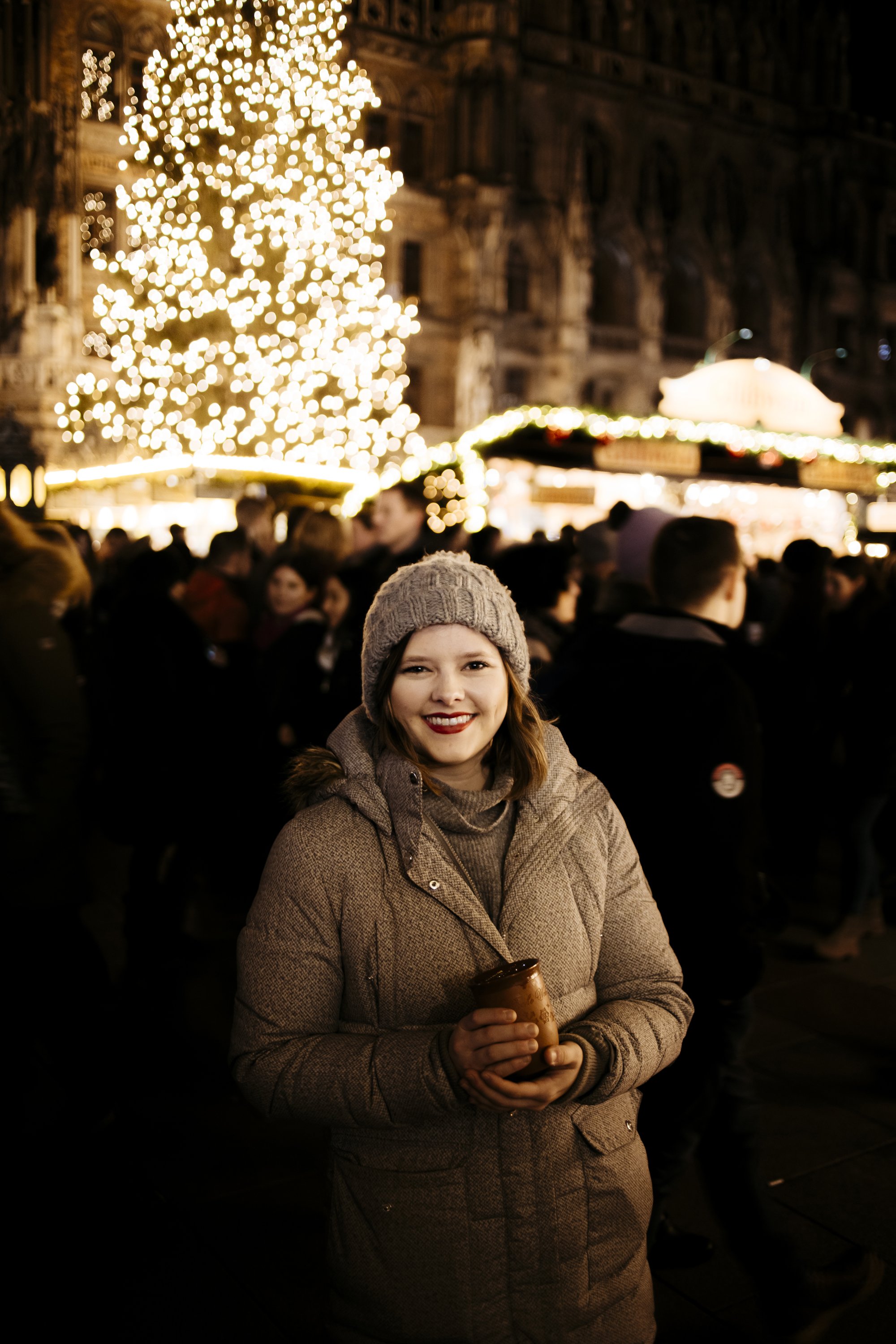













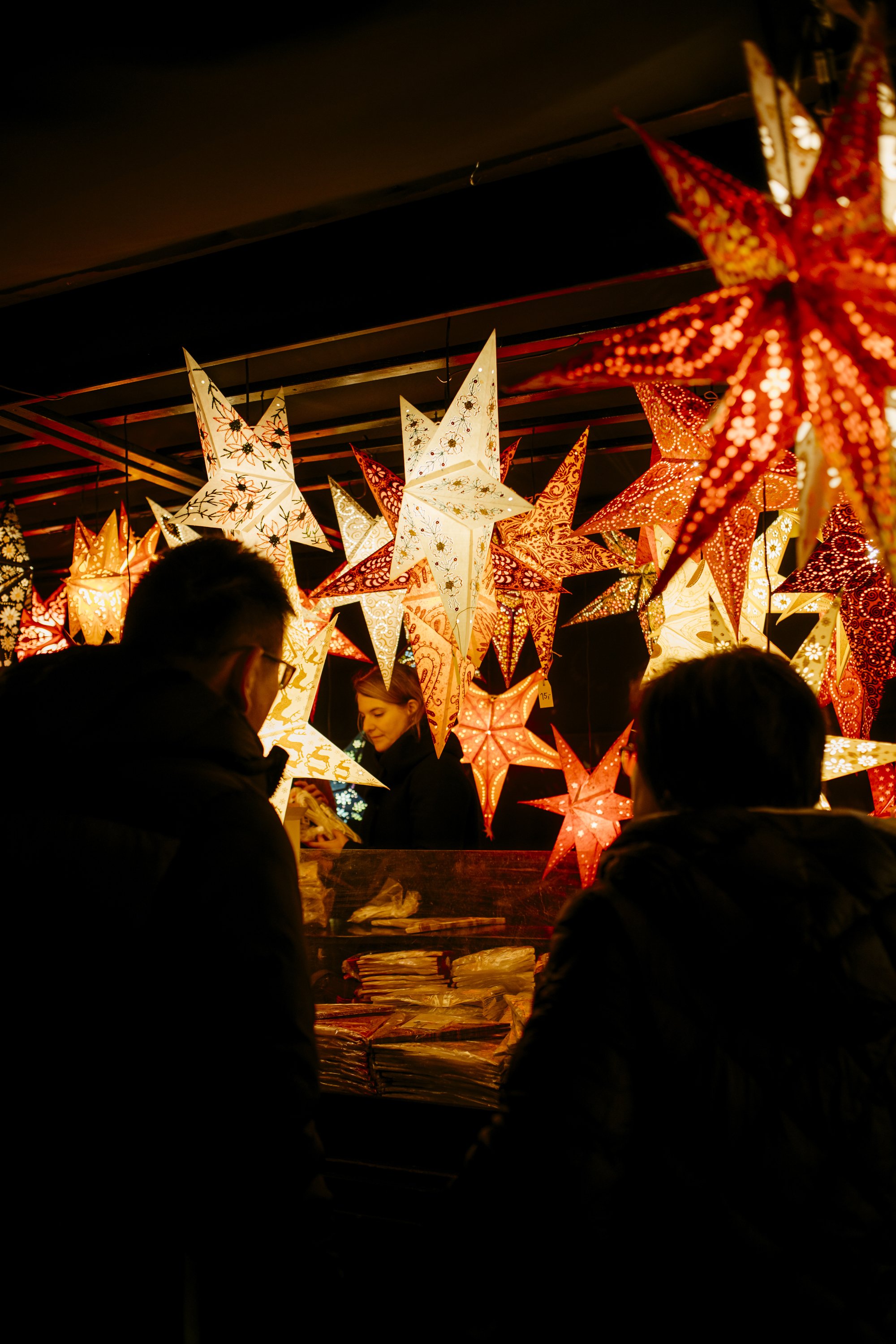

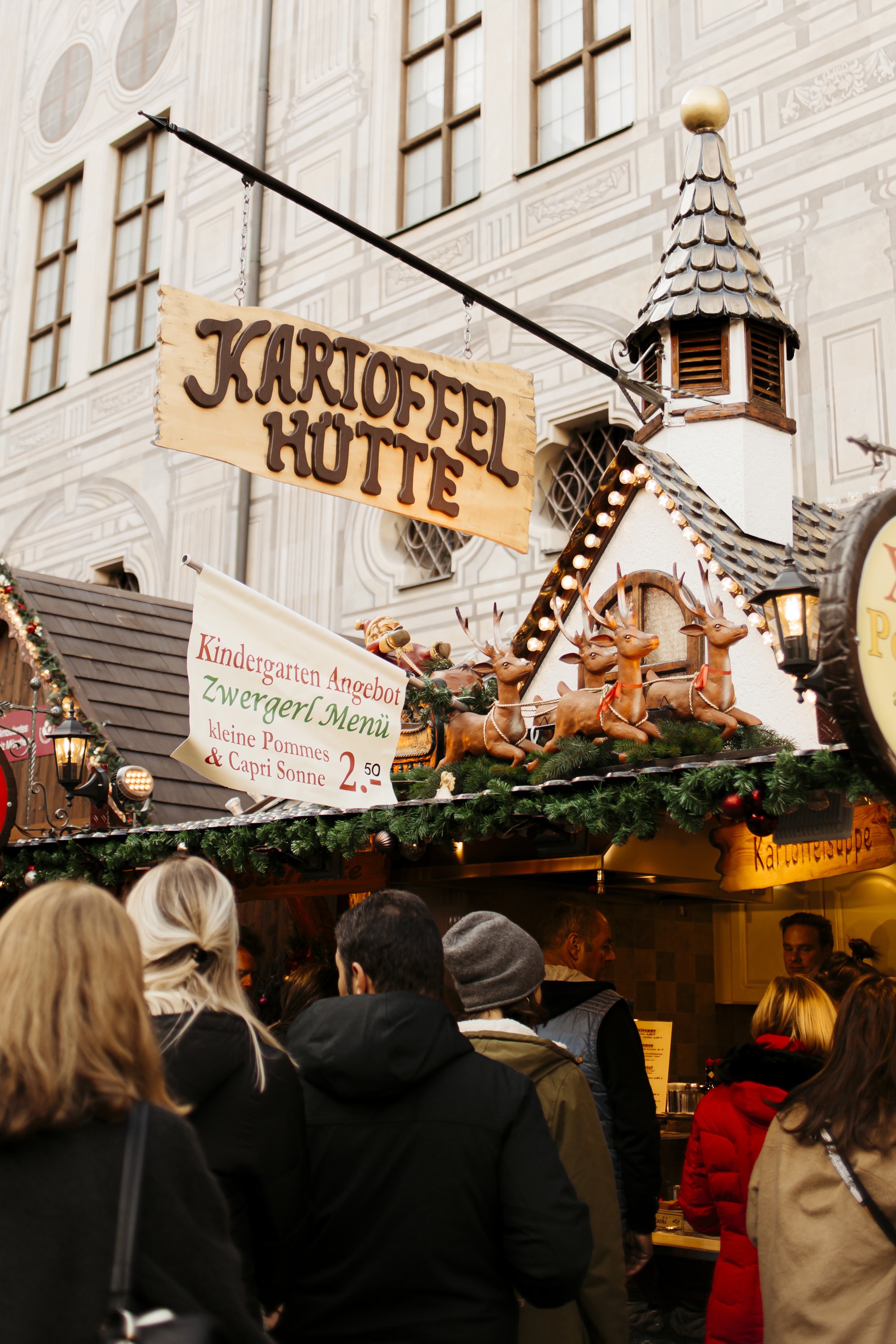

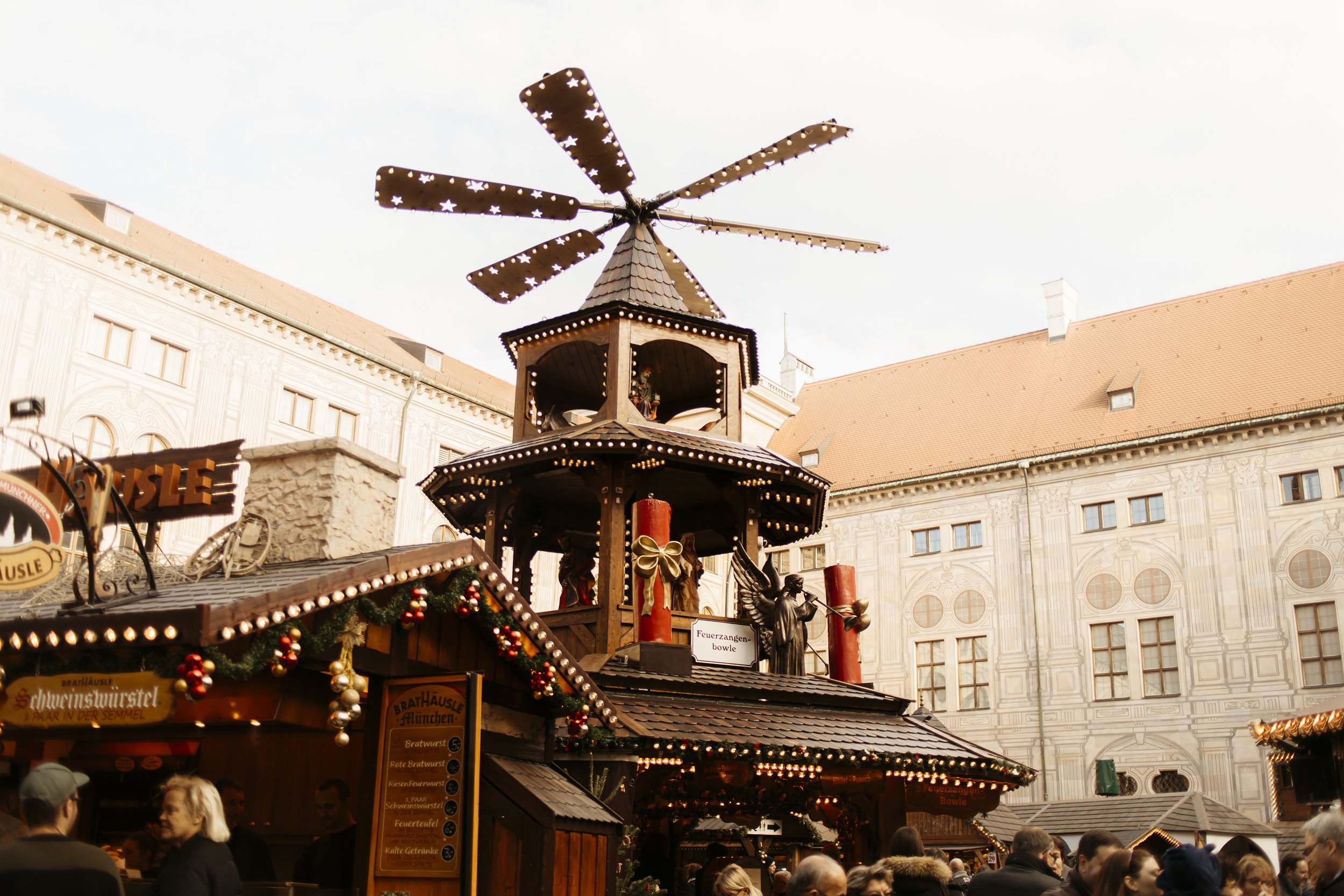



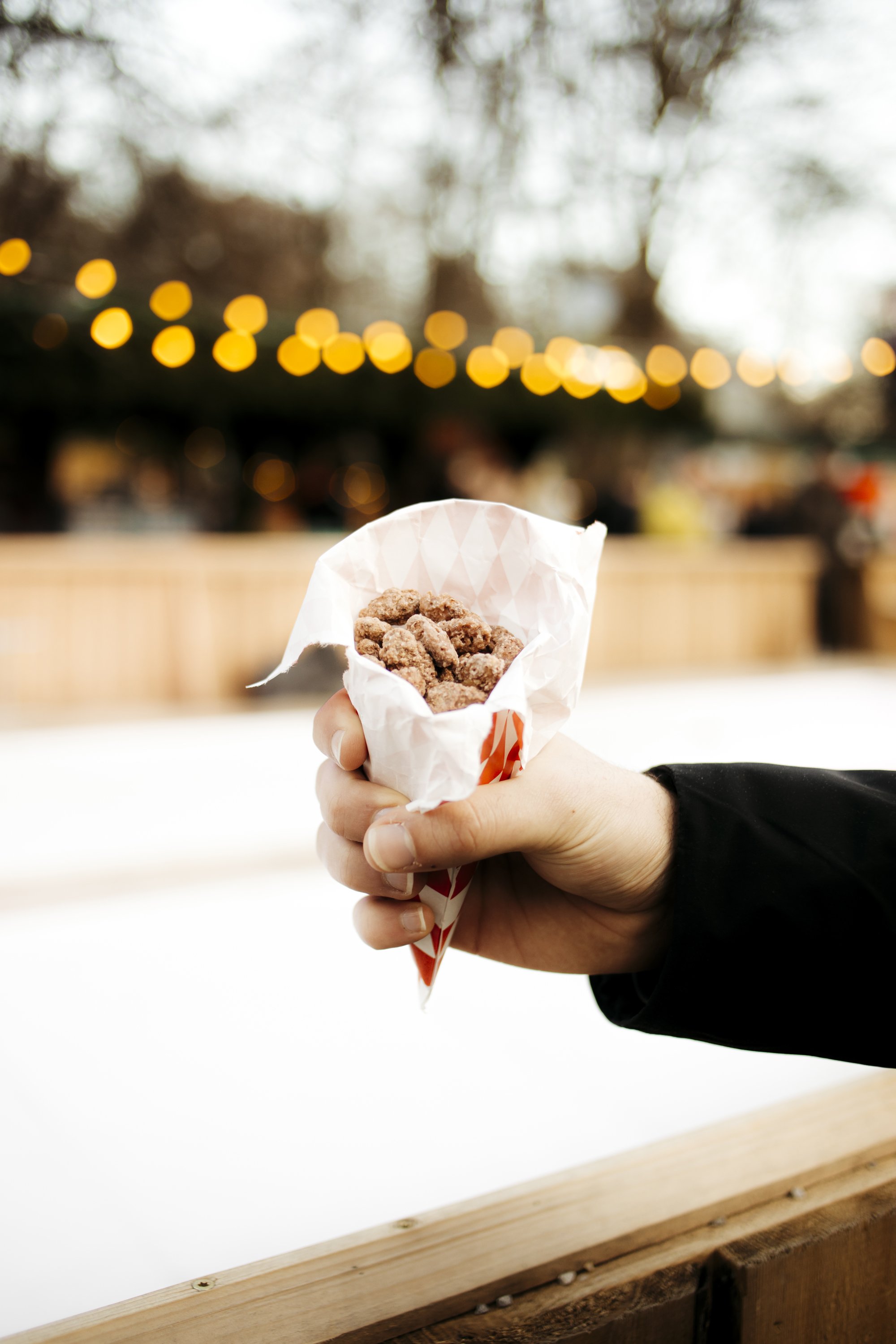




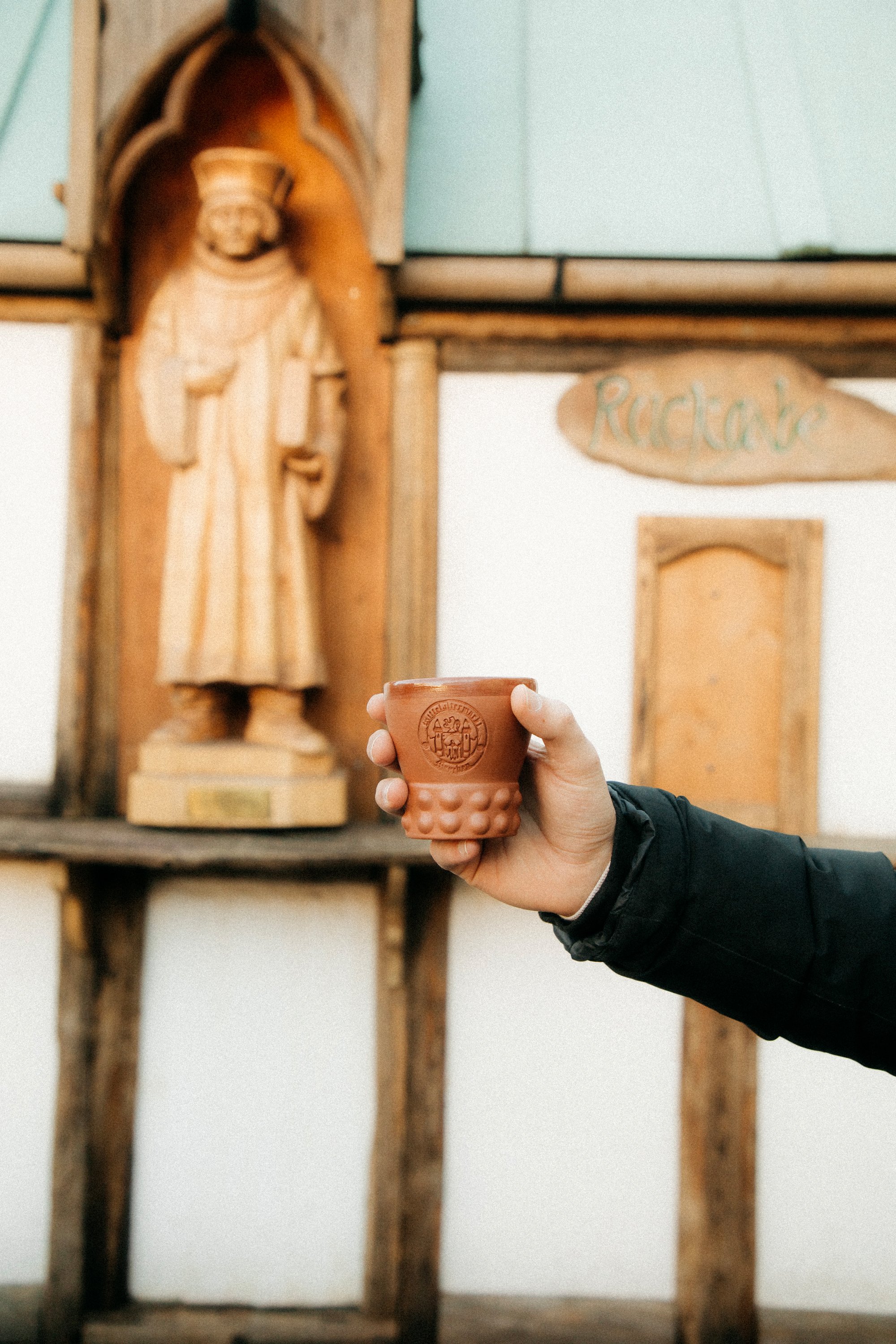
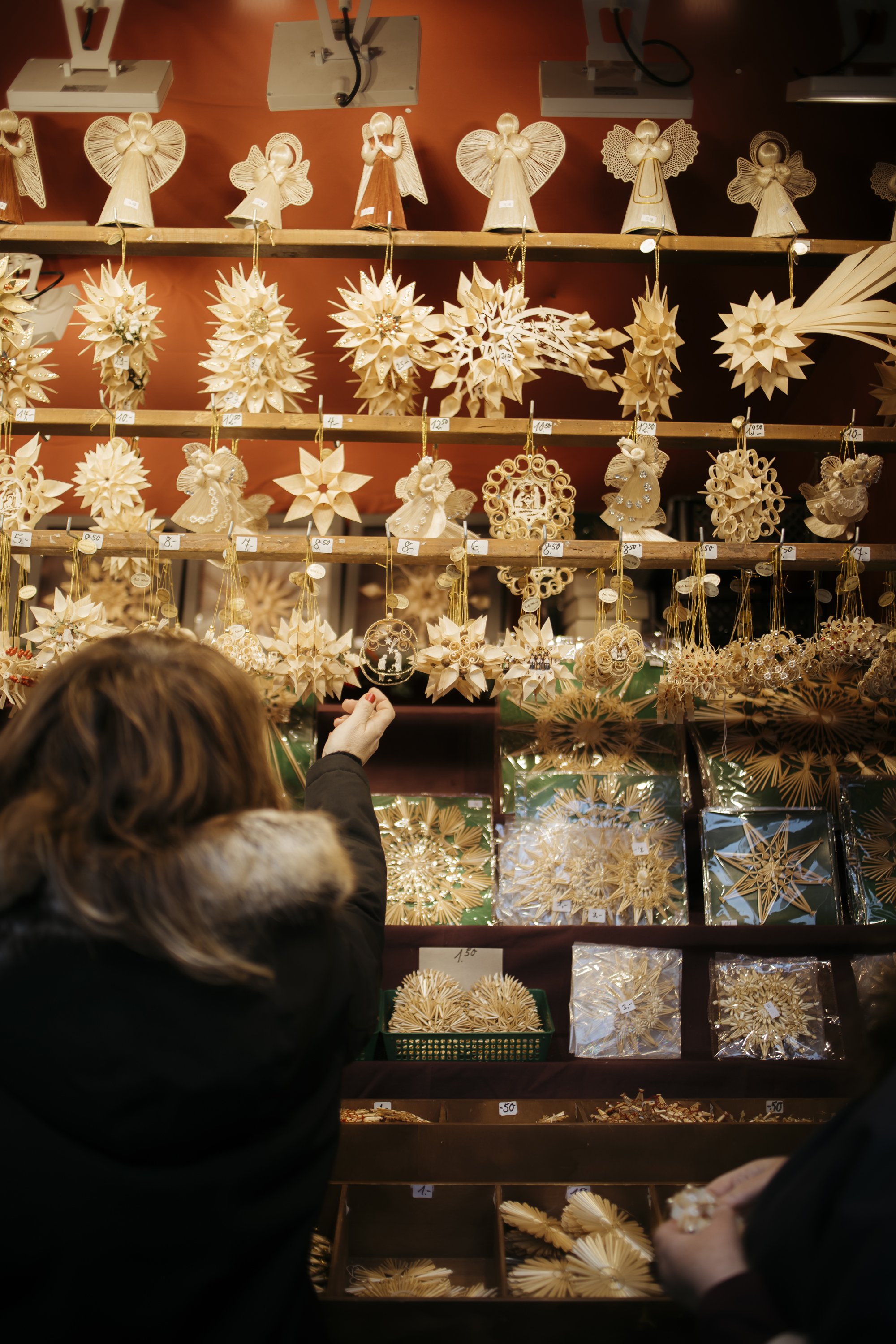




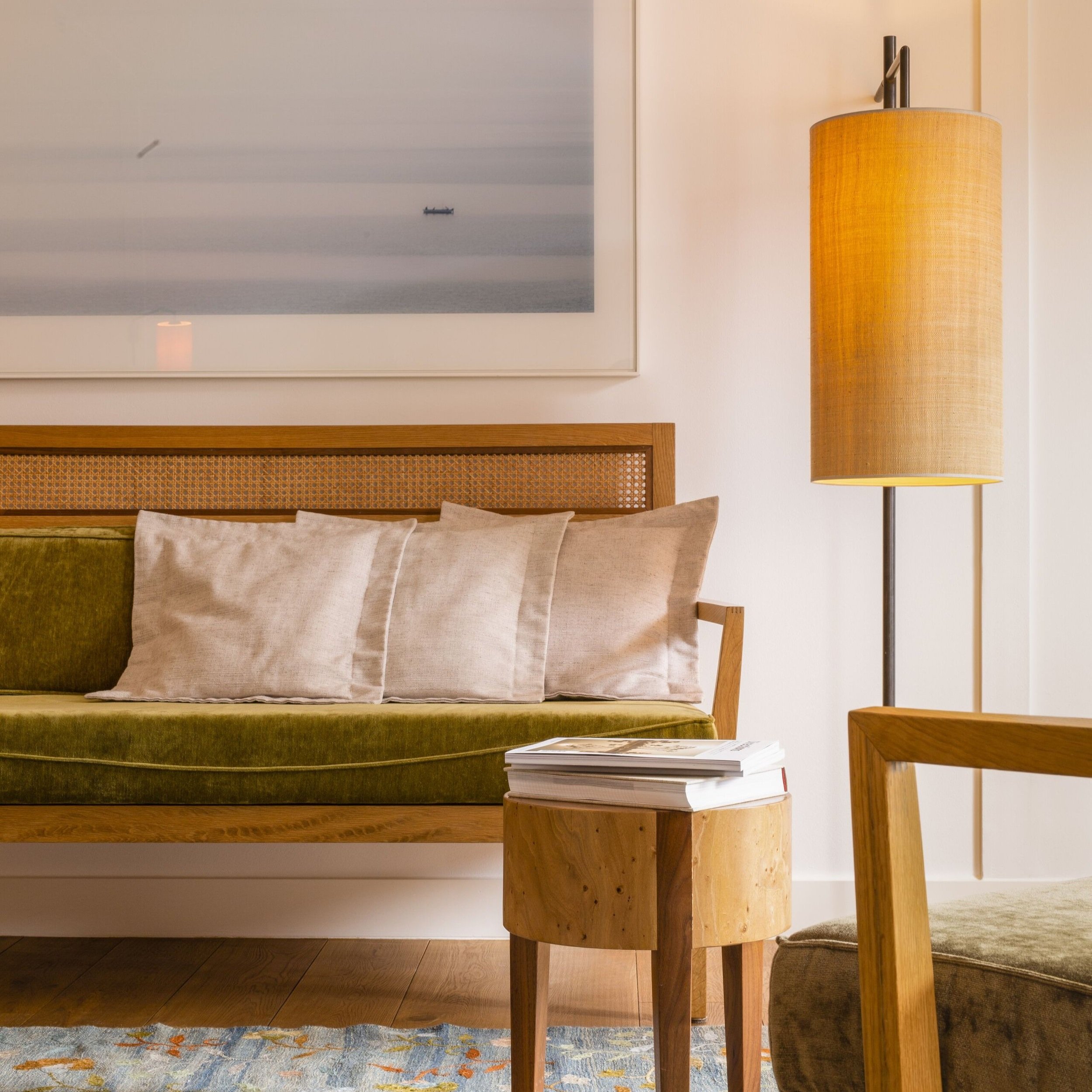











In this guide, we’re sharing everything you need to know to plan a trip to the Alsace Christmas Markets. The guide includes our favorite French Christmas Markets in the Alsace region, what to expect from the Alsace Christmas Markets, tips for visiting the famous Strasbourg and Colmar Christmas markets and where to stay in the Alsace region of France.